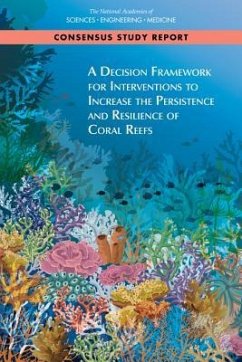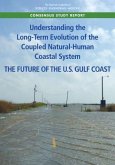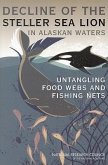"Coral reefs are critical to ocean and human life because they provide food, living area, storm protection, tourism income, and more. However, human-induced stressors, such as overfishing, sediment, pollution, and habitat destruction have threatened ocean ecosystems globally for decades. In the face of climate change, these ecosystems now face an array of unfamiliar challenges due to destructive rises in ocean temperature, acidity and sea level. These factors lead to an increased frequency of bleaching events, hindered growth, and a decreasing rate of calcification. Research on interventions to combat these relatively new stressors and a reevaluation of longstanding interventions is necessary to understand and protect coral reefs in this changing climate. Previous research on these methods prompts further questions regarding the decision making process for site-specific interventions. A Decision Framework for Interventions to Increase the Persistence and Resilience of Coral Reefs builds upon a previous report that reviews the state of research on methods that have been used, tested, or proposed to increase the resilience of coral reefs. This new report aims to help coral managers evaluate the specific needs of their site and navigate the 23 different interventions described in the previous report. A case study of the Caribbean, a region with low coral population plagued by disease, serves as an example for coral intervention decision making. This report provides complex coral management decision making tools, identifies gaps in coral biology and conservation research, and provides examples to help individuals and communities tailor a decision strategy to a local area."--
Hinweis: Dieser Artikel kann nur an eine deutsche Lieferadresse ausgeliefert werden.
Hinweis: Dieser Artikel kann nur an eine deutsche Lieferadresse ausgeliefert werden.








